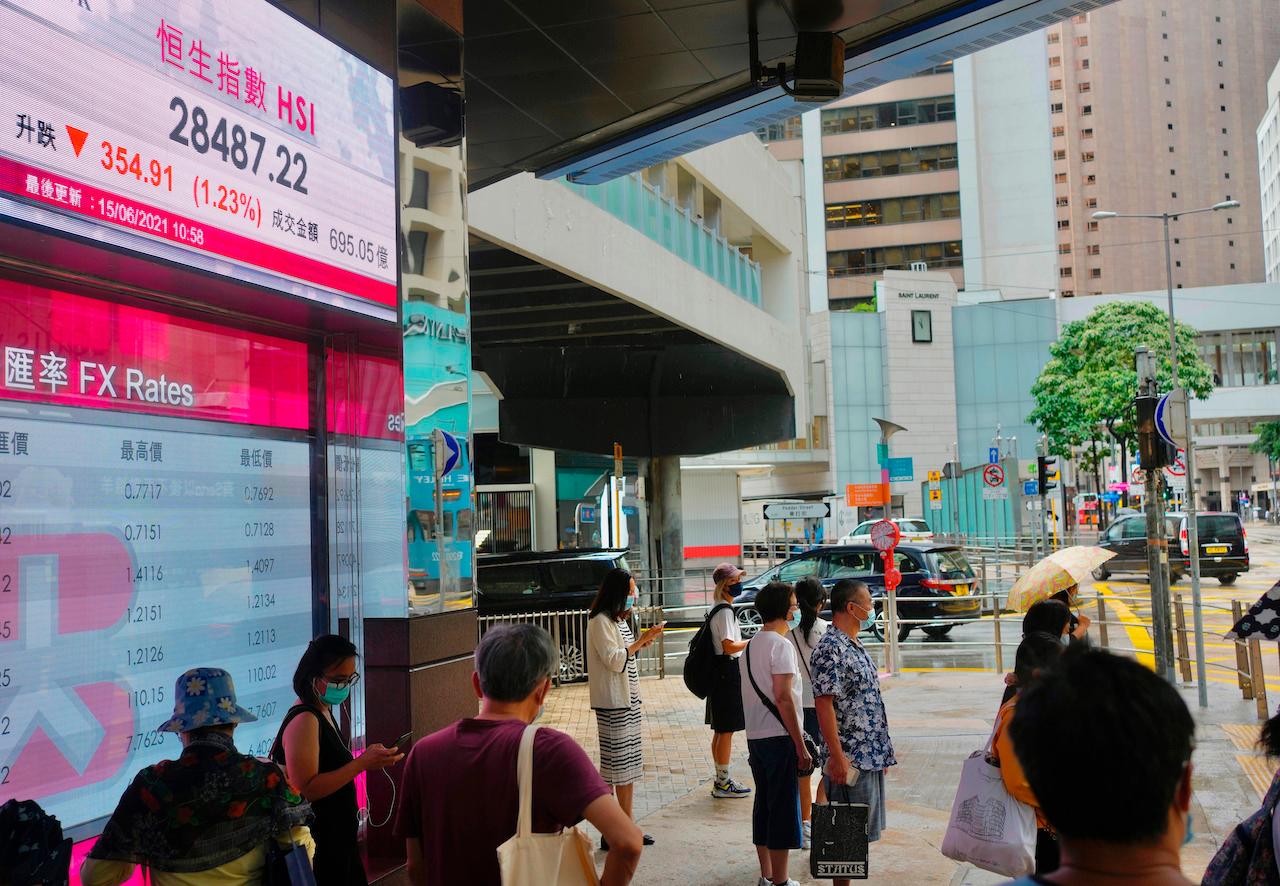Hong Kong financial market trading starts after ‘black rainstorm’ delay
The storm delayed a flight carrying Hong Kong leader Carrie Lam and her delegation to Beijing for the Chinese Communist Party's 100th anniversary celebrations.
Trading on the Hong Kong Stock Exchange finally got underway on Monday afternoon after its morning session was cancelled due to extreme weather.
The decision to open the market came after the government cancelled an earlier “black rainstorm” warning.
The city has three levels of rainstorm warning, with black being the highest after amber and red.
Landslides and flooding were reported in some parts of the Asian finance hub as it was hit with abnormally high amounts of rainfall in a few hours.
Schools and Covid-19 vaccination services were also suspended due to safety concerns.
The Hong Kong Stock Exchange announced that trading would start from 1.30pm local time after the black rainstorm warning was lifted as the extreme weather conditions eased.
It was the city’s first black rainstorm warning this year, with more than 150mm of rain reported in the Western part of Hong Kong and the islands of Lantau and Lamma. Several other districts saw at least 70mm of rain.
The storm delayed a flight carrying Hong Kong leader Carrie Lam and her delegation to Beijing for the Chinese Communist Party’s 100th anniversary celebrations by around an hour, according to the South China Morning Post.
Many in the world of finance are wondering if Hong Kong will be able to weather the storm of an increasingly assertive Beijing in its internal affairs.
Over the past two decades, as China has risen to become the world’s second-largest economy, Hong Kong has skillfully cultivated its role and become the most important international financial centre after New York and London, the Economist reported.
China’s tech tycoons sell shares to Californian hedge funds, its state-run banks issue loans to fund Belt and Road projects and its authorities intervene to control its tightly managed exchange rate.
Much of the financial business is denominated in the world’s reserve currency, the US dollar, organised by Western firms and overseen by independent courts and regulators that have more in common with their peers in the rich world than with their counterparts in Beijing or Shanghai.
The continuing success of Hong Kong is and will remain a key part of China’s growing global dominance.
Subscribe to our newsletter
To be updated with all the latest news and analyses daily.
